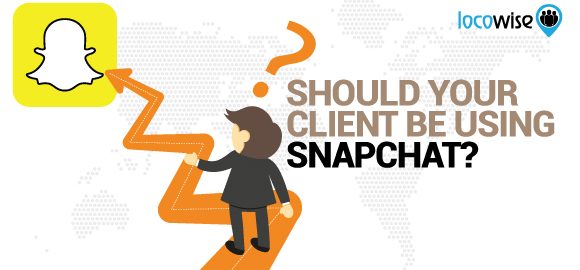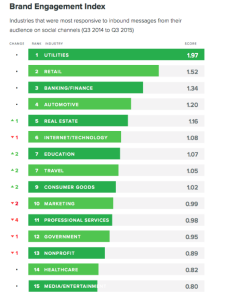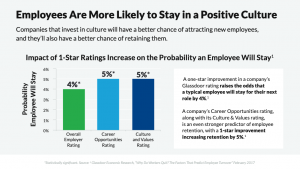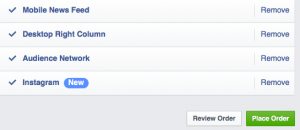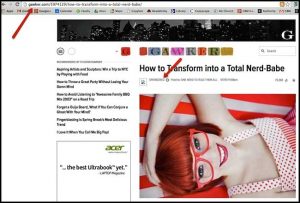Snapchat is arguably the most ‘teen friendly’ platform out there today, but that doesn’t necessarily mean it is doing well. In fact, the platform has had a few bumps in the road to face in the last few weeks.
From a slightly muted IPO announcement to the discovery that the US doesn’t really care for it, the channel is increasingly looking like it has plateaued. As we know, reaching a plateau on social media generally means that the door is open for a new, shinier competitor. We don’t know what would rival Snapchat (or even what it would do) yet because it has a distinct feel to it. But social media has a habit of throwing up new platforms quickly. It is a competitive marketplace, and Snapchat may well be showing signs of strain.

US company called Fluent has caused a bit of a stir. Research completed earlier this year shows that Snapchat may not have the sparkle it used to have. And it’s not necessarily with brands. The people who are becoming disillusioned with the platform, according to the research, are normal, everyday people who use social media. So while Snapchat is still very much a baby among the older, wiser social media channels, it has already been shown (albeit through one piece of research) to be slightly less popular than marketers perhaps think it is.
The bad news
That young audience that you may have convinced your client is perfect for Snapchat? You might want to adapt your opinion a little. While young people do use the platform, this particular slice of the audience is not as large as it was. The research found that ‘the majority’ of younger users feel they will not be using the platform after they turn 35 years old. This may sound great, especially if most of your audience is under 35, but it also illustrates that the channel has a certain reputation.
It’s not such a great reputation either. Essentially, younger people are seeing beyond the platform, rather than committing forever. While they may still be young, they’re kind of dropping off over time. With platforms like Facebook and Instagram, we can see people using those for a long time. The big platforms like Facebook (which you could argue are the pioneers) have the benefit of developing innovative products. Snapchat, while fun for the younger audience, may just be a useful and attractive platform to mess around on.
But perhaps the most worrying aspect of the research surrounds the ad offering. Snapchat allows ads, like most other social media platforms, and as we all know, ads and smart branding create an arena that brings ROI. The responses to the survey did throw up a real problem around advertising on Snapchat. The research showed that 69% of the users who responded skipped ads ‘always’ or ‘often’. The ramifications here are clear.

Source: Statista
If you are using ads on Snapchat for a client right now, it may be worthwhile taking a look at the engagement you are receiving on any ads you run. Chances are that they are showing a smaller level of engagement when compared to ads you might run on Facebook. While this may not necessarily mean things are turning sour, it does suggest that ads should be of the highest quality, and as non-intrusive as possible. Smart branding and messages that resonate are obviously the way forward.
All this, and the corresponding rise, rather than fall, in engagement on Instagram Stories, shows that Snapchat may well be suffering. Of course, it is still functioning very nicely among young people, but we feel that to use a rather clumsy metaphor, this is more of a teenage crush than a full on commitment. And the ads thing does not bode well for Snapchat, which obviously has revenue issues to consider.
Some hope?
Yes, there is. Snapchat is still relatively easy to use, and we can forgive the bumps in the road as regards functionality. But done right, it can still be an excellent add-on for your client’s social media marketing.
And there are still over 60 million daily active users in the US. Anyone who calls Snapchat dead after that is delusional (or Mark Zuckerberg). The key thing for marketers to consider here is how to get the best out of the platform. While it doesn’t do everything you could possibly want it to, if you have that audience on the platform, you can still reach out and engage.
One of the best ways is the live event potential. Snapchat still rocks it in the realm of allowing your audience to feel they are part of a live event. Whether this is a store opening or an ‘unboxing’ of a product or service, the channel supports it beautifully. And if you have a large audience on Snapchat that is actually engaging, the live event is a great way to boost that engagement to this select group.

The captions and drawing tools that the platform provides you with are also a key feature of Snapchat’s value to businesses. One aspect that is really important to remember though is that these tools generally place your client’s brand in a specific area. By that we mean the tools are fun, exciting and generally ‘young’. If you have a very staid, corporate feel to your client’s brand, these tools should be used sparingly. If you do use them, consider taking your audience behind the scenes of the business and using the tools to bring a little warmth and humour to what you do.
The future for Snapchat
There is no need for rash judgements here. Snapchat has still got youth on its side, and it also has plenty of plans for the future. These plans include the development of even more video options, so that is both useful for brands as well as signs that Snap Inc itself is feeling positive.
The recent IPO will have brought in some revenue, and this also means the company is looking better. While the IPO may have worried some investors, it certainly rallied a few days after.
Digital & Social Articles on Business 2 Community
If you are looking after a brand’s Snapchat presence, focus on the basics and the tools you can use to enhance and build engagement levels. Snapchat is not dead in the water yet, but it is true now, more than ever, that a brand has to use it intelligently.
(88)
Report Post